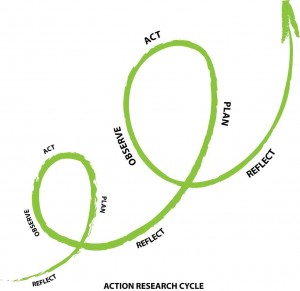 Management is out of fashion, not many people want to be called a manager, they might want their title to be leader, or entrepreneur, or even coach – but manager?
Management is out of fashion, not many people want to be called a manager, they might want their title to be leader, or entrepreneur, or even coach – but manager?
Executives have been getting bad press for years now, they are thought to lack integrity, a 2008 Gallup poll on honesty and ethics found that 37% rated executives low or very low. Things haven’t improved since then. Is it possible that the way management is portrayed by ‘leadership’ gurus encourages ethical decline?
Management is doing things right; leadership is doing the right things. Peter Drucker
Effective leadership is putting first things first. Effective management is discipline, carrying it out. Stephen Covey
Management is about arranging and telling. Leadership is about nurturing and enhancing. Tom Peters
Really? Managers do not need to think about what is right? Managers should just mindlessly follow orders from leaders? Managers are effective when they bark orders and tell others what to do? Does leadership only sit in the top jobs? Is it true that only these privileged individuals have the ability to take an organisation into the future, identify opportunities, or envision ways forward?
This view reduces management to a low-level, administrative, bureaucratic, short sighted role. A role strangled by rigid hierarchies, where blind followership is the norm and management is about obedience, controlling, coordinating and managing subordinates. Would you want to be a manager in this paradigm? I wouldn’t. It kills intrinsic motivation leaving little space for autonomy, mastery, the pursuit of self knowledge, leaving only extrinsic motivation; shallow rewards, grades, competition.
In the Myth of Leadership Jeffrey Nielsen argues that this traditional view of leadership divides our efforts, limits opportunities for growth (individual and organisational), rob us of meaningful, dignified work, opportunities to contribute to and share in organisational success. It’s no surprise managers score low on integrity and ethics when they are expected to leave so much of themselves outside the office and simply pull levers. This makes no sense in an environment where, in most sectors, future success is believed to be driven by creativity, innovation, agility and engagement.
I’ve been a manager myself and it doesn’t have to be this way! There are other ways of thinking and talking about management.
Good management is the art of making problems so interesting and their solutions so constructive that everyone wants to get to work and deal with them. Paul Hawken
The art of effective listening is essential to clear communication, and clear communication is necessary to management success. James Cash Penney
Management is the opportunity to help people become better people. Practiced that way, it’s a magnificent profession. Clayton Christensen
This is where management could get really interesting; I love the notion of management as ‘a magnificent profession’. Here good management is about relationships, communication, it’s a social activity, bringing people together to achieve goals that they could not achieve on their own, building trust in self managing teams, working with and through people to get work done on a day-to-day basis to reach successful outcomes. Leadership becomes a matter of participation and holding the space, role modelling behaviours and maintaining a focus on serving the deeper purposes of the organisation.
So how do we help executives manage in the best way they can? A first step is to examine the costs of maintaining a rigid divide between leaders and managers and explore ways of building more trust in collective intelligence and leadership potential that lies at all levels of an organisation.
One model I use to develop more conscious management and leadership is the action research cycle, a simple and effective iterative model where each cycle refines and brings us closer to the desired outcome.
- Observe: A good first step is gaining awareness about current reality. In most organisations the management model is habitual, unaware, things are done ‘because that’s the way things are done around here’. Recognising this is easier said than done, it’s a like asking a fish to become aware of water – it’s just there, all around, taken for granted – it takes some effort to dis-identify from these ‘givens’ and see with fresh eyes the existing management paradigm and principles that drive everyday relationships, processes and practices.
- Reflect: This is about taking a critical stance, assessing, questioning and challenging these embedded management principles and models, asking if they are effective, fit for purpose in your business environment. If we understanding that management is about bringing people together to meet organisational goals, this opens up discussion about essential management activities and how to develop competencies and skills to undertake these activities.
- Plan: This could begin with initiating conversations and exploring options by looking outwards and researching examples from other businesses environments. It includes considering these in the light of the particular strengths, weaknesses, opportunities and challenges you face in your company, evaluating pros and cons, playing with scenarios. From this a strategy emerges and a choice of action that fits best with organisational goals.
- Act: It helps to frame this as an experiment, often a low risk option is a good starting point ‘small steps’ that provide an opportunity to learn and try new practices to see how they work.
Then start again! Observe what happens, evaluate the actions from your experiment, reflect on outcomes, obtain feedback (this is a crucial step) explore options based on new data, modify the plan if necessary, and act – this is the next iteration of the action research cycle.


